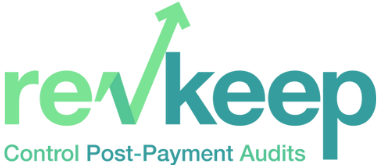Introduction to RAC Audits:
RAC audits, or Recovery Audit Contractor audits, are an integral part of the healthcare revenue cycle management (RCM) process. These audits are conducted by RACs, which are third-party organizations contracted by the Centers for Medicare and Medicaid Services (CMS) to identify and recover improper Medicare payments.
Understanding the Purpose of RAC Audits
RAC audits serve multiple purposes. They aim to detect and prevent fraudulent billing practices, identify billing errors, and ensure compliance with Medicare billing guidelines. By conducting audits, RACs help maintain the integrity of the Medicare program and protect taxpayer dollars.
How RAC Audits Work
RAC audits involve a thorough review of healthcare claims submitted by providers. RACs employ advanced data analytics and algorithms to identify claims that may have billing errors or require further investigation. These claims are then subjected to a comprehensive audit, where RACs assess the medical necessity, accuracy, and compliance of the submitted documentation.
Common RAC Audit Issues
Several common issues can trigger RAC audits, including upcoding, incorrect billing codes, lack of medical necessity documentation, and billing for services not rendered. It’s crucial for healthcare organizations to be aware of these potential pitfalls to avoid being flagged for an audit.
Additionally, the topics that RAC auditors are focusing on as approved by the Office of Inspector General (OIG) can be found at: https://www.cms.gov/Research-Statistics-Data-and-Systems/Monitoring-Programs/Medicare-FFS-Compliance-Programs/Recovery-Audit-Program/Approved-RAC-Topics
Responding to RAC Audit Requests
When a healthcare provider receives a RAC audit request, it’s essential to respond promptly and accurately. Failure to comply or submit the necessary documentation within the given timeframe can lead to payment recoupments and penalties. Thoroughly reviewing the audit request, gathering the required information, and maintaining clear and concise records are crucial steps in the response process.
Benefits of RevKeep Software for RAC Audits
RevKeep is a cutting-edge software solution designed to streamline RAC audits and enhance the efficiency of your RCM team. With RevKeep, you can:
Simplify Documentation Management
RevKeep provides a centralized platform for managing audit documentation. It allows you to store and organize all relevant files securely, making it easy to access and retrieve information when responding to RAC audit requests.
Track Audit Progress
RevKeep enables you to track the progress of each audit, ensuring transparency and accountability throughout the process. You can monitor the status of each claim, review actions taken, and stay informed about any updates or deadlines.
Identify Patterns and Trends
With RevKeep’s advanced analytics capabilities, you can identify patterns and trends in RAC audit outcomes. By analyzing the audit results, you can gain valuable insights into common issues and implement proactive measures to minimize future audit risks.
Improve Compliance
RevKeep helps your RCM team adhere to Medicare billing guidelines and compliance requirements. The software provides built-in checks and balances to ensure accurate coding, proper documentation, and adherence to medical necessity guidelines.
Conclusion
RAC audits are a critical component of the healthcare revenue cycle management process. Understanding the purpose, process, and potential pitfalls of RAC audits is essential for healthcare organizations. By leveraging RevKeep software, RCM teams can streamline RAC audits, enhance documentation management, track audit progress, identify trends, and improve compliance.
RevKeep is the ideal solution for simplifying RAC audits and boosting your chances of success. With its user-friendly interface and powerful features, RevKeep empowers RCM teams to navigate the complexities of RAC audits effectively.


